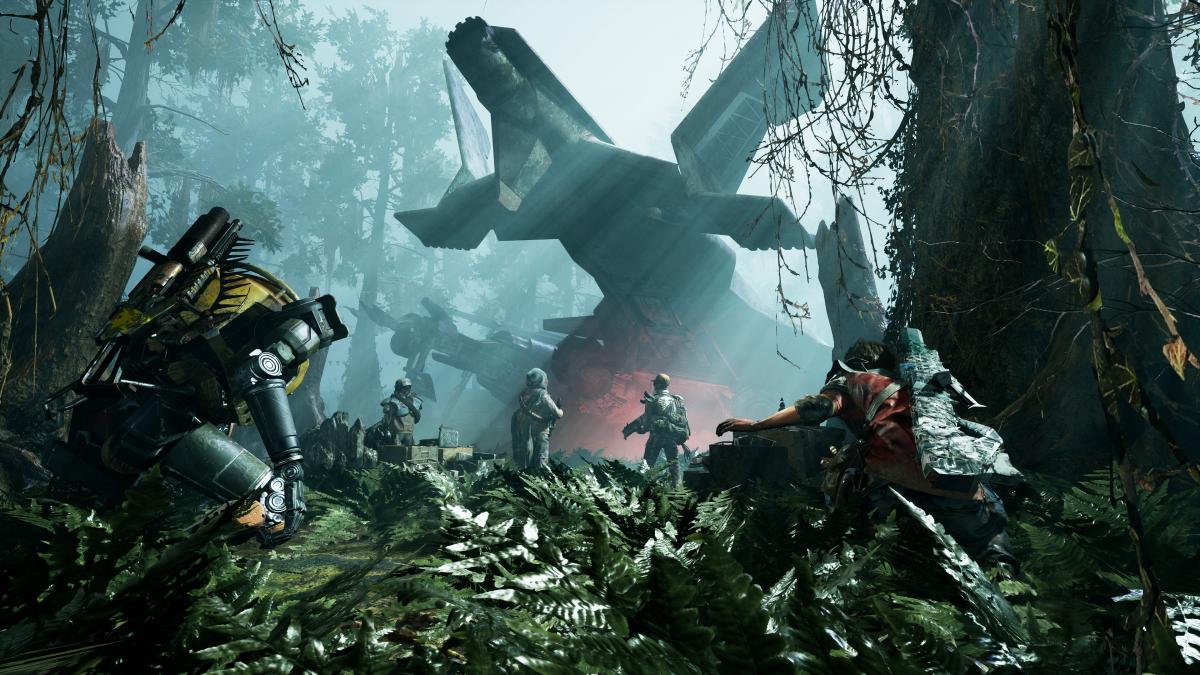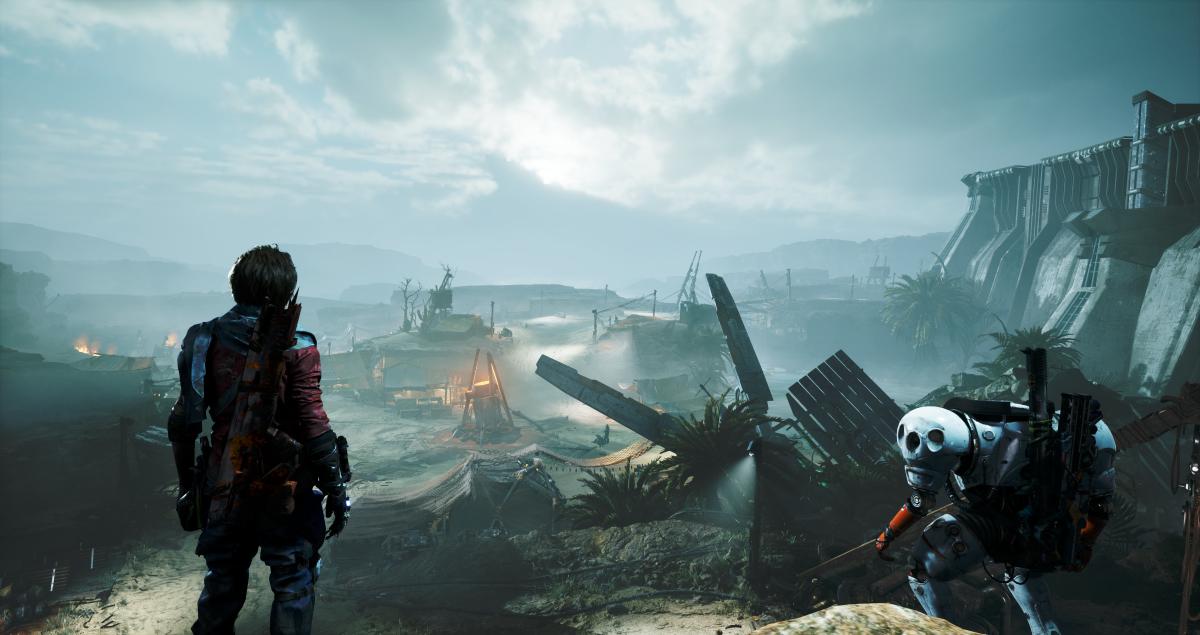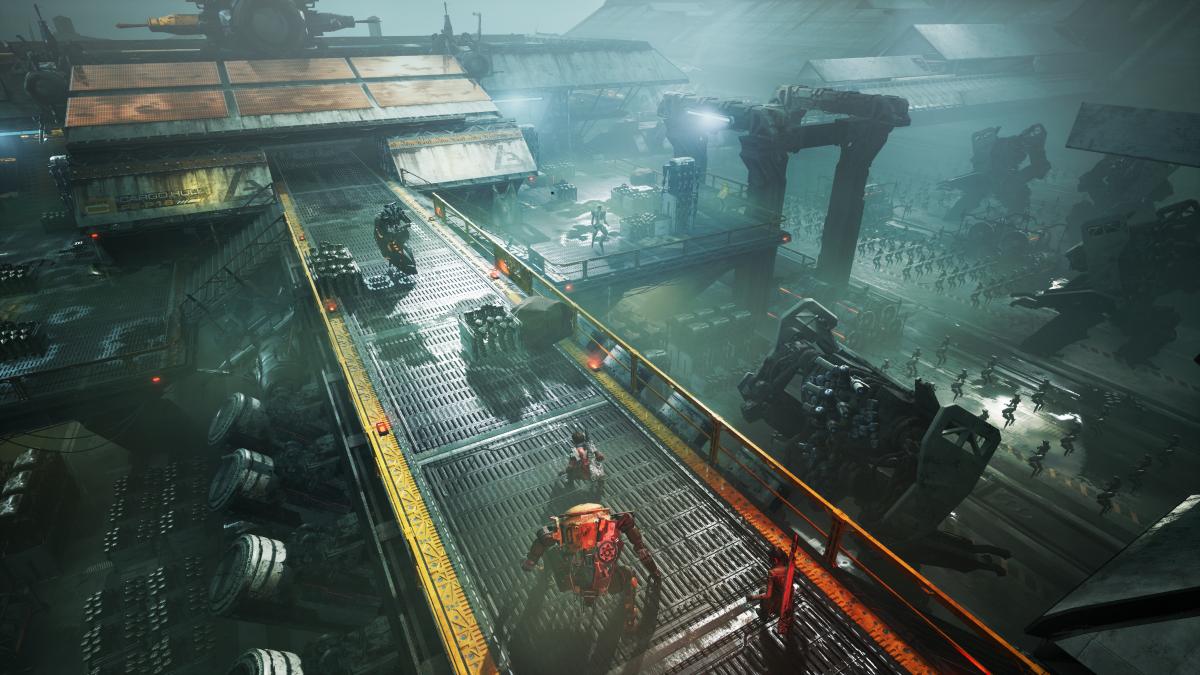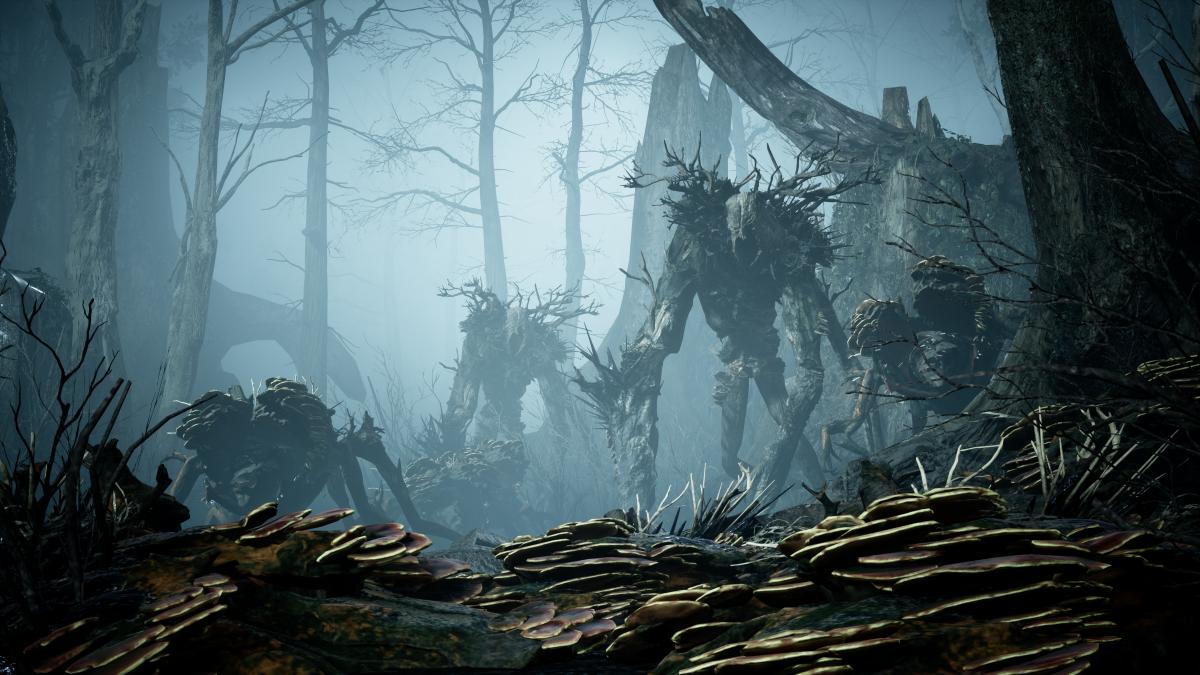The Miasma Chronicles devs fight each other sometimes to make a better game

It’s a packed time for fans of turn-based tactical games with the releases of Showgunners, The Lamplighters League, and Miasma Chronicles in the span of just a few weeks from each other. The Bearded Ladies have made a name for themselves in this genre years ago with Mutant Year Zero: Road to Eden and hope to follow that title’s success with Miasma Chronicles, their own IP. Catching up with the developers at their studio in Malmö, Sweden, I already asked game director Lee Varley why the team chose a post-apocalyptic setting again, how difficult it was to balance darkness and humor, and many other things.
Mark Parker, lead producer of Miasma Chronicles, echoes Varley’s answer to the question about balancing the tone, saying it’s very hard. “Me and Lee, we argue about it a lot,” he adds.
“I like comedy and dark humor. Lee tries to balance it more towards the serious side, so there’s sometimes quite a lot of arguing. Not in a nasty way – in a creative way. Which has to happen,” Parker explains. “I mean, the only way we forge something is by hitting it a few times and heating it up, so the good stuff comes from when we all look at things together.”
Parker recounts the team’s final pass over the story and dialog, in which they made some cuts to tighten the pacing and even out any inconsistencies. “Part of that pass was to also get the tone according to what Lee wants. As I said, I argue with Lee about it, I have my feelings about it, but it’s going to be fun. I think there’s still humor to be found, but there’s also a solid story around that,” he says. The tale can’t be silly all the time, Parker concedes. The characters must have charm, but their journey also has to have a meaning.

The lead producer’s days begin early in the weeks ahead of launch, but despite that he’s always in good spirits, full of energy, and nothing escapes his eyes. A screen with the game running on it flickers a little bit while it is idling on the character menu as we talk – I don’t notice it, but Parker immediately makes a note of it as a possible issue with the machine’s graphics card drivers and the game. Both he and Varley are beaming during the event, proud to show off their baby and relieved to finally get to talk about it in detail. Miasma Chronicles certainly doesn’t lack passion poured into it by its creators.
“We made a game that we would also enjoy playing and the good news is that a lot of us are aligned in that way of thinking, so that’s lucky,” Parker says. “I met developers or have heard of developers before, who say, ‘Oh, I make a game just for myself, I know there won’t be any players, but that doesn’t matter’ – but no, games are about sharing experiences and building an experience.”
Parker thinks back to his own past to underline the point: “I used to do live role-playing back in the UK when I was like 13. We’d go for a weekend, one team would be the NPCs, one team would be the heroes. It was about building experiences for each other. We didn’t go too hard on them when we were the NPCs. We wanted those heroes to feel like they’re getting something done. We were designing experiences and levels and gameplay around how we interacted with them and it’s very much the same with games.
“We want games that people are going to play and enjoy. It’s not just for us to have fun, because we’re not the customers.”

Miasma Chronicles, just like Mutant Year Zero: Road to Eden, is based in a post-apocalyptic setting, though the team rooted its game in America this time around. “Mutant is a Swedish IP,” Parker explains. “A lot of the team come from Gothenburg and the game is actually set in the Gothenburg region, which people figured out from the map. I love that people actually put time into figuring it out from all the hints we put in.” This followed the advice of the tabletop RPG ruleset the video game is based on, which advises players to pick an area their group knows well.
While people from all over the world loved Mutant Year Zero: Road to Eden, some of the cultural references flew over the head of anyone not familiar with Sweden. Parker says that American culture has the advantage of being more understandable to a worldwide audience – even though there are plenty of misconceptions from both sides of the pond about each other. Trusting in their American lead writer, the team aimed to represent American culture in a tasteful manner. They became especially interested in Kentucky, where parts of the game ended up being set.
“We watched these videos of gold miners and coal miners in the south of the US from 70 years ago and we liked the way they talked and came across,” Parker recounts. “We didn’t want to make it like they were super hillbillies and they all sleep with their sisters and live in a mud hut, stuff like that. We wanted them to come across as real people and be fun, but we didn’t want people to feel like we’re making fun of them or stereotyping them.”

The second big advantage of the US is the variety of biomes found in the country, adding to the possible variety of locations to include in the game – from cities to swamps and deserts, you’ll get to explore many interesting places in Miasma Chronicles.
The final piece of reasoning for the game to be set in the US comes from the background story and themes the developers wanted to include. “The kinds of problems that are apparent in the story – the reliance on technology and big companies, that sort of thing – make it more believable to be set in America, where corporations pretty much rule unchecked,” the producer argues. “These companies are shaping their world around their needs and this can only continue. This is all bubbling up in our world [the game’s world], isn’t it? The world’s broken in lots of different ways and corporations and pollution are a part of that.”
Miasma Chronicles’ combat is all about flanking and positioning, which made it very difficult for the developers to find a good way of including melee combat on the side of the players aside from the odd ability. “It was hard to make it fun,” Parker says. “Sometimes we’ve just got to say to ourselves ‘if it’s not fun, why do we do it?’” He mentions that the studio got an offer to create a melee-based game in the past and thought about how this could work even then. Ultimately, though, The Bearded Ladies passed on the offer. “It’s very hard to communicate how a sword can miss and hit. It’s very easy to communicate how a gun might miss and hit,” Parker reasons.

Another feature that didn’t make it into Miasma Chronicles are hostage scenarios: “We wanted to have bounty missions where you captured prisoners and brought them back alive to the sheriff in town. But it became a weird situation where you have one tactical character, who has no interest in being stuck there, but you’ve got to protect them and can’t use them to fight. So that was one idea we didn’t implement, but we tend to keep these floating around.”
However, you’ll still be able to add temporary characters to your party during combat from items that let you spawn allies or through mind-controlling enemies, so that system is still in place. That’ll solve your melee problems as well, since you can use these temporary party members to soak some hits for your crew – while your own characters don’t have melee capabilities for the most part, many encounters contain enemies with such attacks. Parker explains that “they’re pressure enemies to keep the player either moving or keep them on their toes.”
It sure sounds like there’ll be a lot to keep you on your toes in Miasma Chronicles, which will be released on May 23, 2023, on PC, PS5, and Xbox Series X|S.
